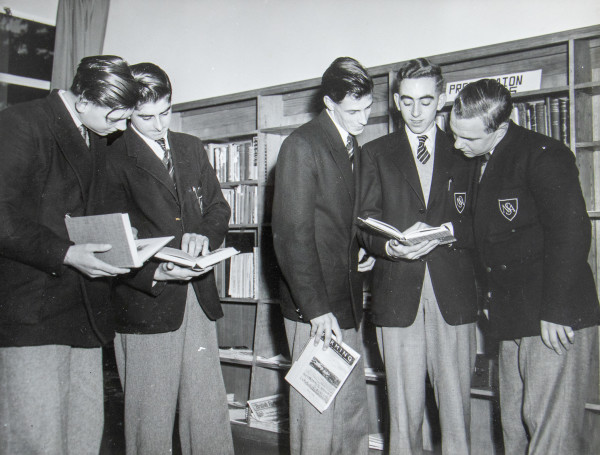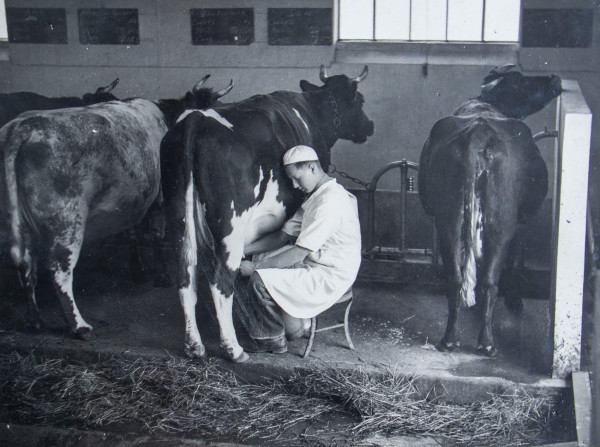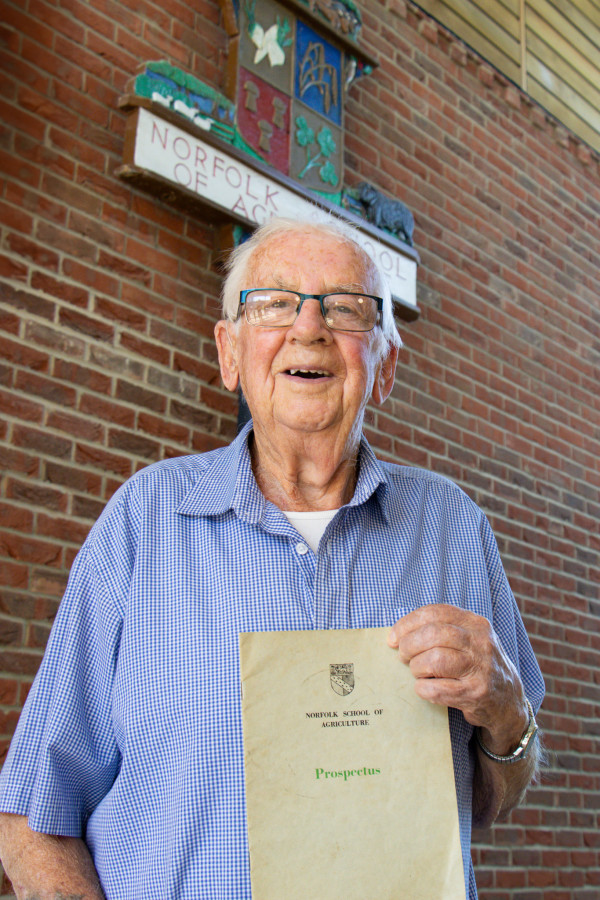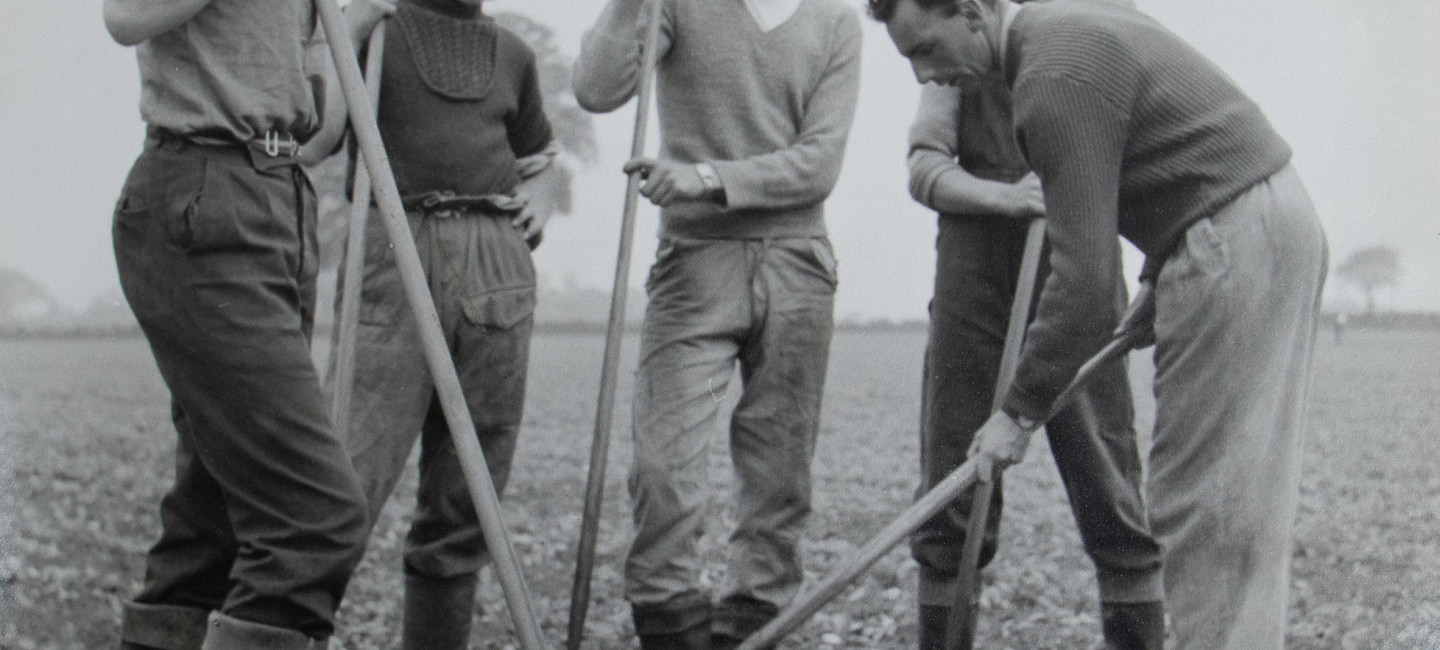Memories of being an agriculture student in 1953
7th August 2025
A former agriculture student who studied at the then Norfolk School of Agriculture has shared his memories from when Easton College was in the first years of its existence.
The Norfolk School of Agriculture was opened on the Easton Hall estate in 1951. James Medler joined the college in 1953, aged 16, spending one year on its agriculture course.
I was always interested in gardening, to be honest, and animals, and that’s why I came’, says Mr Medler. ‘In those days you decided what you were going to do once you left school and that would be your future. I thought I’d like to get into farming, so that’s how I came to be here."
The first on-site student residential accommodation hadn’t been opened at this point, so James and his peers boarded at Wymondham College where the Nissen huts from the old Second World War USAAF Station Hospital were used as dormitories.

A group of students wearing Norfolk School of Agriculture blazers.
Norfolk School of Agriculture students were transported to the college by bus each day. Mr Medler recounts that theory lessons were taught in classrooms in Easton Hall each morning, before the students spent their afternoons engaged in practical learning on the estate.
There wasn’t much in the way of buildings, apart from the farm buildings’, continues Mr Medler. ‘This was all farmland. They called it a college, but really it was a farm. It was just a 700-acre farm and you were just sort of pupils at the farm. It wasn’t like it is now. It was strictly agriculture."
The prospectus from 1953 sets out the wide-ranging practical topics that the Norfolk School of Agriculture taught through its working farm, using its Model Farm and Upper Farm buildings.
The curriculum covered arable farming of wheat, barley and other crops, as well as livestock work with the farm’s dairy herds of Friesians and Dairy Shorthorns, as well as husbandry of sheep, horses and poultry.
We were taught things that don’t matter today. Who would hand-milk a cow? Who would plough a field with a horse?"

A student hand-milking a Frieseian cow in the Model Farm milking parlour.
Students also learnt about farm machinery maintenance, farm crafts including hedging, ditching, drainage and farm carpentry, farm forestry, and beekeeping.
Mr Medler has good memories of what it was like learning on the farm; ‘It was entertaining, there was more enjoyment in those days.’
In contrast, Mr Medler remembers the environment at Wymondham as being much more formal:
They were strict. They had head boys and all that sort of thing. I had a blazer with a badge on it. The only time we were allowed out was to go to church on Sundays, at Morley St Botolph, and we used to wear our blazers then.
The weekends used to get a bit boring because you weren’t allowed out, apart from going to church. Occasionally they used to let us go into Wymondham. There was a swimming pool and now and again they would let you go to the swimming pool."
Although he enjoyed the agriculture course, James came to the realisation that a career in agriculture was going to be difficult to pursue for someone whose family did not already have a farm for him to go on to work on.
So, Mr Medler changed direction and decided to join the Navy instead, where he served for 12 years, before having a spell in South America working in the energy industry.

James Medler with the 1953 prospectus standing in front of the old Norfolk School of Agriculture sign.
Mr Medler and his wife subsequently returned to Norfolk from their home in Croydon, taking on a pig farm at Hevingham.
Although James didn’t work with pigs during his time at the Norfolk School of Agriculture, the learning from that year stood him in good stead for managing the pig farm and growing his own vegetables.
We kept pigs, 480 pigs. After a while I got fed up with travelling and thought I’d have a go at this pig farm, and so we built another shed and we doubled up to 880 pigs, and that’s how we ended up. The knowledge [from my Norfolk School of Agriculture days] did come in handy because we did have a few sheep and a couple of bullocks."
Mr Medler returned to Easton College recently, bringing with him a prospectus from 1953 which he has kindly donated to the college’s history archive.
